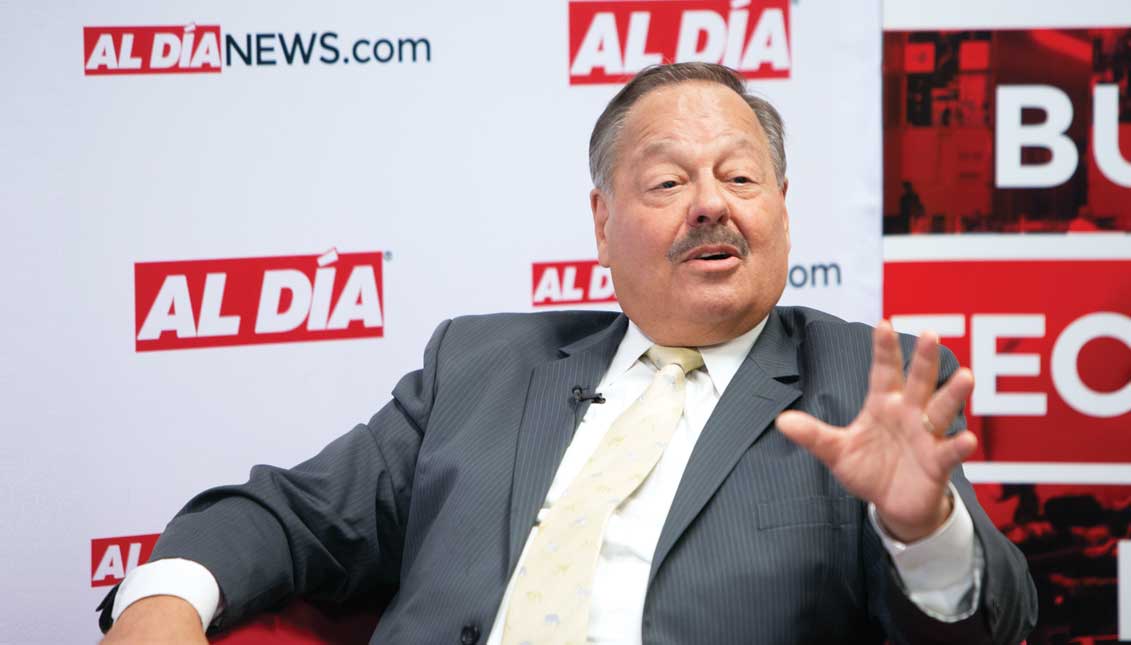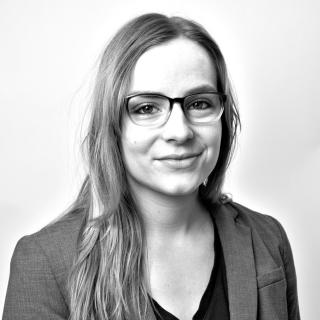
Nelson Díaz: The first, but not the last
Nelson Díaz, the first Latino judge to sit on the bench in Philadelphia and stand up for the voiceless Puerto Rican community, has cemented his trailblazing…
As a standout among America’s prominent leaders, the time has come for Judge Nelson Díaz to reflect, assess and inspire the progress of Latinos on behalf of the largest incoming generation of Hispanic youth in the U.S.
“History doesn’t tell you. Success has many fathers, so everybody takes credit for stuff that us Latinos have been able to do in this country,” Díaz said during an interview with AL DÍA. “If you don’t write it, you don’t tell it, no one’s ever going to know.”
Díaz was the first Puerto Rican to attend and graduate Temple Law School, and the first Latino lawyer to pass the Pennsylvania Bar Exam. He was the first, and for some time the only, Latino to practice law in the state. He was the first Latino judge elected in Pennsylvania, serving on the Court of Common Pleas in Philadelphia County for 12 years. He was the first Latino approved by the Senate for his appointment as general counsel to former Housing and Urban Development Secretary Henry Cisneros during the Clinton administration.
Díaz made real, tangible, change that deserves to be displayed in museums and textbooks from the mainland U.S. to the island of Puerto Rico, and all across the globe. And he’s kickstarting the written history himself with an autobiography, “No soy de aquí ni de allá” (“Not From Here, Not From There”), which will be released on Sept. 28.
When Nelson Díaz came to Philadelphia to study law at Temple University, the city lacked Latino leadership — corruption plagued the police department and court system, and there was a bitter, often violent racial divide between white and minority residents, specifically in the North and Northeast sections of the city. In his years at Temple, Díaz witnessed the school’s white-washed admissions system and, in response, co-founded the first black and Hispanic law student association. Spearheading protests on campus, his advocacy led to an increase in minorities enrolling at Temple overall.
Díaz credits Dr. Peter Liacouras, the late Temple president who transformed the university’s racial makeup, with recruiting Díaz as the first Puerto Rican to study at Temple Law, then encouraging him to return to the city after his White House Fellowship in 1978. Díaz wrote that Liacouras changed the course of his life, urging him to “finish what he started” in Philadelphia.
If Liacouras had not prompted him, Díaz said he would have preferred a quiet, comfortable life as an accountant, raising his family, or returned to New York City after law school. But he could not turn away from the racial injustices he witnessed.
“I came to Philly, and when I realized the discrimination that existed, understanding the law, it was unbearable to me,” Díaz said. “There had only been 67 African Americans that had passed the bar before 1972 when I took the bar. That was unconscionable. There were no students that had graduated from my background in any of the law schools here. Whether it was the University of Pennsylvania or whether it was Temple... So I felt the responsibility to begin opening doors.”
[node:field_slideshow]
Díaz’s autobiography documents the rampant discrimination and hate crimes against Puerto Rican residents that he encountered as a public defender, as well as personal attacks on his family’s home in Kensington, then later when they moved to New Jersey. He was the one the Hispanic community turned to in 1973, when a 14-year-old Puerto Rican, Julio Osorio, was chased off the docks of the Delaware River to his death, drowning because his walk home from Penn Treaty Junior High crossed white neighborhoods.
When the Santiagos, a Puerto Rican family living on an all-white Feltonville block, suffered a racially-motivated firebomb attack by a man connected to Democratic leadership in 1975, Díaz, along with a Coalition for Justice, followed the investigation through and through to bring the criminal — and several bad actors in the police department — to justice. The fire that engulfed the Santiago home killed the family’s three children, their mother and another child who had been living with them. The crime’s only witness: a young Puerto Rican named, coincidentally, Nelson.
The case was riddled with inconsistencies, and the continued, resilient investigative work by Díaz and the coalition uncovered that, following the murders, suspects and witnesses had been beaten and framed by police to protect the real assailant, who had political connections. Díaz comforted and cross-questioned the witness Nelson, who had also been intimidated into lying in his testimony. It was not until more than four years later when six detectives were arrested for their crimes.
This solidified Díaz’s vision of government and elite America as a game of favors and patronage, which he criticizes to this day. He wrote that it was a period when “small-time political expediency and cronyism outweighed the innocent lives of four children and a mother. It was a stunning miscarriage of justice, even for Philadelphia.” In contrast, Díaz said he defined his own public service with integrity and represented community needs.
“No soy de aquí ni de allá” looks back at the often untold history of Díaz’s career, as one of the only legal and political voices for the then-voiceless Puerto Rican and Latino community in Philadelphia. The book tells his inspiring story of winning the hand God dealt him — a childhood in Harlem tenement housing — and includes anecdotes that are untold to even his closest family members.
Díaz marched and disputed alongside civil rights figures like Charlie Bowser; saved the Bloque de Oro, the Latino community’s business district along North 5th street; helped to draft and implement the Fair Housing Act of 1988 and reformed Philadelphia’s court system. He pushed his way into authoritative circles where he was not welcome and achieved solutions that improved the quality of life for the city and nation’s most vulnerable.
Díaz coupled his leadership and expertise in the law with his passion for activism and public service, becoming a “lifelong striver,” in the words of Cisneros (who authored the autobiograpy’s foreword), and accomplishing a series of firsts for Hispanics.
And it all started with Díaz’s mother, Maria, leaving Puerto Rico for New York in 1947, baby Nelson in her belly. She was unmarried, and raised Díaz alone until she met his stepfather. But Maria took on the duties of parenthood — successfully getting Díaz into Catholic school by abandoning him there, enforcing his strict 6 p.m. curfew to avoid the dangers of Harlem, beating him with a bat when she found him making trouble and inspiring his faith in God, and in himself.
RELATED CONTENT
“She was always bribing me... That was always helpful because of the intervention,” Díaz said. “Understanding that God doesn’t make junk and that nothing is impossible… My opinion is part of that Pygmalion theory, which is if you truly have belief that the expectations are higher, you can achieve higher.”
Díaz credits his mother and their move to public housing for the radical turn he took as a teenager from a troublemaker to a young leader who cared about his education and community when others in his neighborhood ended up in gangs or falling victim to the rampant drug and HIV/AIDS crises. Like Maria, Díaz wants to be the saving grace of struggling youth who behave badly, face rough circumstances or suffer because the system has failed them.
“I feel their pain. If they don’t get an education, where are they going to end up? Most of them in jail, on drugs, or some place else,” Díaz said. “If they could see not to give up, to strive, to continue, they could change the world… If I could change one of them, it’s important to me.”
Díaz said he finally realized Maria’s importance to his education and future when he began writing his autobiography before she died in 2016. To him, it was gratifying to document her journey and Puerto Rico through her eyes in the first few chapters of “No soy de aquí ni de allá.” Maria was his connection to the island, and ensured that he experienced life there with family, sharing her identity and furthering his understanding of the complicated Puerto Rican diaspora.
Maria came to the mainland U.S. during a time when tens of thousands of Puerto Ricans were arriving — their largest migration, other than the most recent exodus following the other Maria, referring to the catastrophic hurricane. With his book, Díaz also wants to tell the history of Puerto Rico, the Latin American-but-American territory of U.S. citizens, who he said are rarely treated as such and accept what he described as a “colonial mentality” of succumbing to what mainland officials think is best.
Díaz is, again, a voice among few willing to criticize leaders on the island and Latinos in power on the mainland. He said there’s too much infighting and not enough demand for the advancement of the community, and that Latinos need to recognize their voting and economic power — an opportunity to mobilize — especially with their enormous strength in numbers.
But Díaz is assuredly not friendly to an administration that he said designates Puerto Ricans, and Latinos overall, as worthless, demonstrated by the White House’s lackluster response to the island’s recent devastation and its disparaging border policies.
Díaz also identified Puerto Ricans as unique to other Hispanic groups. Cubans understand democracy, he said, because they learned the tough lesson of authoritative experimentation and eventually reached independence. Central and South American nations are sovereign.
Puerto Rico, however, has long been an American colony, passively subject to the control of legislators who do not represent the island’s interests, and the hurricane aftermath is exemplary of this. As someone who has refused to bend to injustice his entire life, Díaz is wondering who, now, is willing to instill change for Puerto Rico, and all Latinos in the U.S., as they witness a disinterested government.
“That’s the real problem of our community — that we have not been willing, here parochially, to move and select our own leaders and know how to work the leadership,” Díaz said. “Until we’re mature enough, we’re not going to get the leadership we need to move up the ladder… If [Latinos] don’t vote, if we sit back, we’re going to get another four years of a wall. Whether it’s figuratively or actually.”










LEAVE A COMMENT: